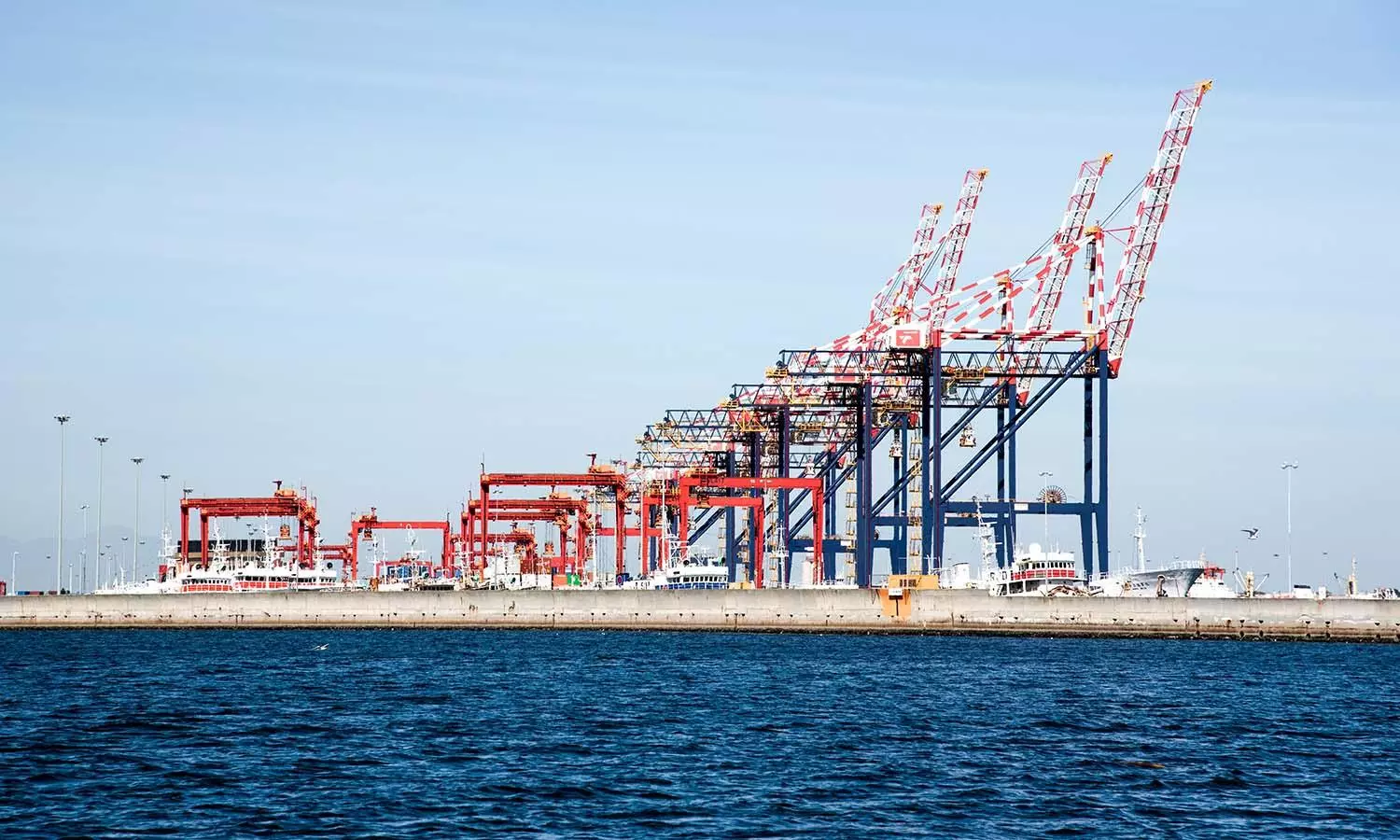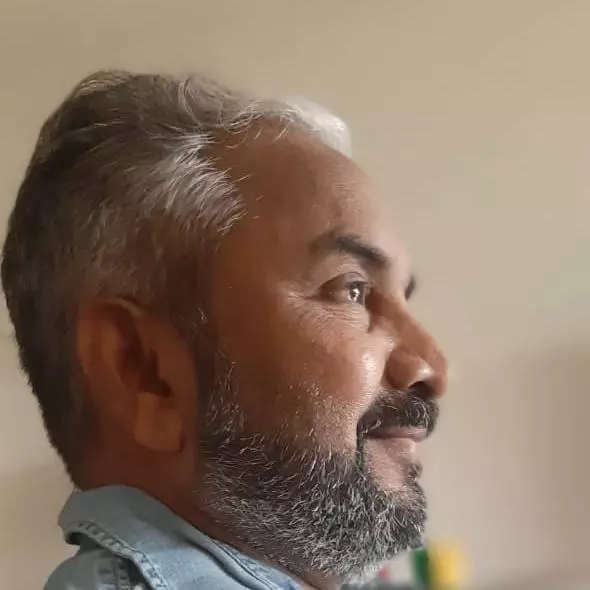African Development Bank Group betting big dollars on growth
Transnet gets $1bn, Tanzania arranges over $1bn for rail project. What’s moving the infrastructure sector in Africa?

Amadou Hott, candidate for the Presidency of the African Development Bank Group, in his new year address mentioned about making 2025 a pivotal year for Africa.
"I am fully prepared to leverage my extensive experience in both the private and public sectors to amplify the impact of the African Development Bank Group. My vision for driving a sustainable prosperity in our continent includes mobilising resources, energising the private sector, strengthening project execution, modernising the Bank’s operations, and forging strategic partnerships.
"To turn this vision into reality, I commit to:
*Successfully implement the new Ten-Year Strategy recently approved by the Governors with a strong focus on food security and industrialisation;
*Facilitate the creation of an ecosystem of inclusive economic opportunities for youth and women
*Accelerate the continent's digital transformation
*Strengthen climate resilience and address fragility; and
*Finally, promote regional integration and intra-African trade."
Hott is the nominee of Senegal for the office of President of the African Development Bank Group. He was earlier the special envoy of the President of the African Development Bank. Hott was also Minister of Economy, Planning and Cooperation in Senegal in April 2019.
60 years of legacy
The African Development Bank Group completed 60 years in 2024, and the bank has mobilised $184 billion till now to support Africa's development and growth. In total, it has financed 6,575 projects since its establishment in September 1964.
2024 was marked by multiple events - first ever visit by US Secretary of State Antony Blinken to the Bank, first sustainable hybrid bond issue of $750 million which saw bids for over $6 billion, $1 billion loan to Transnet for capacity expansion and the outlining of 10-year strategy.
The African Development Bank Group's board of directors unanimously approved the management's proposal for the construction of a modern, state-of-the-art building to house its headquarters in Abidjan, the economic capital of Côte d'Ivoire. Bank President Akinwumi Adesina expressed his gratitude to Côte d'Ivoire's President Alassane Ouattara and the Ivorian government for their firm support of the Bank: "The decision taken by our Boards of Directors shows the Bank's lasting anchor in Côte d'Ivoire, our home, today and tomorrow. We count on the resolute support of the Ivorian government to accompany us in this historic project," Adesina said.
Photo Credit: African Development Bank
Big takes on infrastructure
The African Development Bank's board approved a sovereign-guaranteed corporate loan of ZAR 18.85 billion ($1 billion) to Transnet, the South African conglomerate that manages the country's ports, railways, and pipelines.
The loan is intended for implementing the first phase of the company's five-year ZAR 152.8 billion ($8.1 billion) investment plan, which aims to improve its existing capacity before expanding to priority segments across the transport value chain.
Solomon Quaynor, Vice President, Private Sector, Infrastructure and Industrialisation, African Development Bank says: "Our partnership will enable Transnet to implement a comprehensive recovery plan, addressing operational inefficiencies, particularly in the rail and port sectors. This plan aligns with South Africa's strategic roadmap for the freight logistics system and is overseen by the National Logistics Crisis Committee, chaired by the presidency. This initiative demonstrates our commitment to strengthening national logistics capabilities and promoting sustainable economic growth."
Demonstrating its remarkable agility in support of the private sector, the Bank disbursed the first tranche - of four planned - of financing to Transnet on December 6, 2024.
Transnet employs more than 50,000 people and plays a critical role in integrating and connecting South Africa with the global economy. The company’s freight system’s activities contribute significantly to South Africa’s economy. Its operations serve as key gateways for trade within South Africa and with landlocked countries in the region such as Botswana, Zambia, Zimbabwe, and the Democratic Republic of Congo through the Port of Durban.
The African Development Bank Group has signed a coordination letter with Deutsche Bank and Société Générale to establish a syndication strategy to mobilise up to $1.2 billion for Tanzania's standard gauge railway (SGR) project.
The agreement was signed during the African Investment Forum's 2024 Market Days in Rabat, Morocco. Tanzania's Ministry of Finance is seeking to raise funds from the international debt capital markets to finance the construction of a 411-kilometre railway line between Tabora and Kigoma. The $2.3 billion project will connect Tanzania's port of Dar es Salaam on the Indian Ocean to the port of Mwanza on Lake Victoria. From there, it will extend to neighboring Rwanda, Burundi, the Democratic Republic of Congo, and Uganda.
The Republic of Korea has committed to providing $14 billion in export financing to support Korean companies investing in Africa while increasing its official development assistance to $10 billion by 2030. Adesina called on Korea to contribute to ADF-17 replenishment and to the Alliance for Green Infrastructure in Africa (AGIA), a new Bank initiative in partnership with the African Union and Africa50, aimed at mobilising $10 billion in private financing for green infrastructure in Africa.
The Japan International Cooperation Agency (JICA) signed a donor loan agreement with the bank for JPY 51.67 billion ($421 million) for the African Development Fund. The loan, pledged by the Japanese government during the ADF-16 replenishment in December 2022, will support essential development in Africa's least developed and most fragile countries.
The board has approved $135 million in financing for the Union of Comoros - the largest- ever granted to the Indian Ocean archipelago - to finance a major maritime and regional trade project. "The support for the Maritime Corridor Development and Regional Trade Facilitation Project will enable the extension and modernisation of the ports of Moroni and Boingoma, essential to Comoros' economic development, as well as the establishment of a special economic zone."
Photo Credit: African Development Bank
The Africa Investment Forum (AIF) 2024 Market Days in December recorded $29.2 billion in expressions of interest from investors worldwide after three days of boardroom discussions in Rabat, Morocco. Adesina described the result as "truly exceptional." In total, 2,300 investors and delegates from 83 countries participated in the 2024 Market Days, a 60 percent increase from last year.
Country stories
The bank has approved two loans to Cameroon designed to improve transport links with neighbouring Chad with major economic benefits to both countries. The funds, €318.24 million and €12.24 million, are for the implementation of the fourth phase of the Transport Sector Support Programme – reconstruction of the Douala-N'Djamena Economic Corridor-Ngaoundéré-Garoua Section (PAST 4).
The larger loan comes from the Bank Group while the €12.24 million is provided through the African Development Fund, the Bank Group's concessional lending window.
The programme’s direct area of influence is in the Adamaoua (two districts) and Nord (three districts) regions, which are home to an estimated population of 5.68 million inhabitants. On average, women represent 51 percent of this population, while young people under 20 years old make up more than half.
The board of directors of the African Development Bank Group has approved a $165 million loan to Madagascar to develop critical trade corridors and improve regional connectivity. The funding will support the third phase of a major infrastructure project to improve trade corridors across the country,
The funds will be sourced from the African Development Fund, the Bank Group’s concessional lending arm. The project aims to contribute to economic and social integration in the southern part of Madagascar by opening up every part of the region. It will achieve this by building and operationalising transport corridors to the rest of the country and Africa as a whole while strengthening trade facilitation procedures and processes between the ports of Tuléar and Beira."
The board approved loans totalling €156.66 million to Burkina Faso and Mali for the upgrading and asphalting of cross-border roads linking the two landlocked West African countries to Côte d'Ivoire.
A total of 242 km of road will be revamped in the two countries courtesy of funding from the Bank Group's concessional window and the Transition Support Facility, a mechanism designed to provide additional concessional resources to eligible countries faced with situations of fragility and conflict.
The Islamic Development Bank and the European Union are also co-financing the project to the tune of €138 million and €25 million, respectively.
For Burkina Faso, the funding will enable the 155-km Bobo Dioulasso-Banfora-Côte d’Ivoire border road to be upgraded and reinforced, and the 42-km Banfora-Orodara section to be built. It will also make it possible for the 100-metre-long bridge spanning the Léraba River, which connects Burkina Faso and Côte d'Ivoire, to be modernised and split into two lanes.
As for Mali, the Bank Group's €73.73 million backing is mainly earmarked for the upgrading and asphalting of the Bougouni-Garalo section of the Bougouni-Garalo-Manankoro-Côte d'Ivoire border road. This stretch is 45 km long. The programme will be implemented over six years (2024-2030).
The bank has approved a loan of $140.6 million to Eswatini for the first stage of a programme to improve road links and mobility at national and regional level in both urban and rural areas and create at least 200 jobs.
The road infrastructure investment will enable upgrading of 105.9 km of paved roads. The new road surfaces will be adapted to climate change, enabling all-weather transportation locally and the wider area. The Siphofaneni-Sithobelath-Maloma-Nsoko (MR14) and Maloma-Siphambanweni (MR21) sections will be upgraded and will have a width of 12.3 metres, including two-metre paved shoulders on each side of the road as well as bridges.
The bank has granted Tunisia a loan of €80.16 million to implement the next phase of the country’s road improvement scheme.
The project for phase three of the Road Infrastructure Modernisation Programme carries a total cost of €86.21 million, and is being co-financed by the loan of €80.16 million from the bank. This covers 92.98 percent of the total cost of the project with a supporting contribution of €6.05 million from the Tunisian government.
The plan aims to upgrade 188.9 km of classified roads in seven governorates: Kef, Kasserine, Sousse, Sfax, Kairouan, Siliana and Gafsa where substantial economic potential remains unrealised due to transport constraints largely as a result of the poor condition of roads.
The intervention will help to create an efficient and sustainable transport system, which can support growth and create favourable conditions for the movement of goods and people in and between Tunisia’s regions.
"The transport sector plays an important role in the Tunisian economy, accounting for about five percent of GDP and providing 160,000 jobs, directly and indirectly. The project, which will run from 2025 to 2030, is a continuation of two earlier phases of the Road Infrastructure Modernisation Programme."


